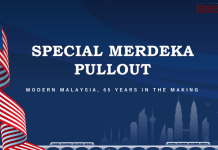By Sharon Chang
The cataclysm of the pandemic has pushed topics like diversity and inclusion (D&I) to the side-lines. During the best of times, it is often perceived as a “nice to have”, but now D&I is put on the back burner — however, this is rarely a conscious part of employers — as leaders struggle to manage in a time of fundamental uncertainty.
For many organisations, small and medium enterprises (SMEs) and start-ups especially, there is no choice but to go into ‘survival mode’ and do everything it takes to simply get through this crisis without collapsing.
However, the Country Leader of 3M Malaysia believes that D&I will be one of the critical differentiators in how companies weather this storm. Those that have prioritised and invested in developing inclusive leaders and cultures and building balanced leadership teams across their businesses will fare better than others. Whilst for the many companies that have had mixed success with D&I efforts may benefit even more from keeping it on their leadership agenda for the here and now, as well as for medium- and long-term business success.
In a response to a question, GT Lim, Country Leader 3M Malaysia, says diversity is fundamental to innovation and creativity.
According to the 2018 Hays Asia Diversity and Inclusion report, improved company culture, leadership and greater innovation were the top three benefits of diversity identified by respondents.
“A diverse and inclusive culture is one that supports and appreciates differences, and provides fair and equal opportunities for everyone,” Lim opines. Inclusion leads to engagement, which in turn fosters the collaboration, creativity and innovation that drives long-term growth.
Innovation is a critical part of 3M’s success, Lim says, and because they promote a D&I culture – a part of the organisation’s DNA – it enables them to consistently produce great products and improve their processes to better serve their customers.
“D&I cannot be a one-time campaign or a one-off initiative,” he mentions. Promoting them in the workplace is a constant work-in-progress and should be maintained and nurtured to guarantee effectiveness.
D&I improves organisational performance
Lim also points out that during crises, the presence of diversity and the practice of inclusion is essential to challenge us to look at problems differently and consider a wider range of issues and impacts that we might not otherwise.
The evidence from past crises shows that D&I can play an important role in coming up with creative solutions to effectively handle challenges, the country leader tells Business Today, citing a most recent example on the international handling of the pandemic. We saw that leadership groups from cities and countries that were more inclusive were able to handle the Covid-19 pandemic more successfully than those without them.
There are several reports that indicated during the global financial crisis in 2018 and 2019, financial institutions with a higher ratio of women on their boards were more stable than their peers. They serve as a voice in mapping the strategic direction of a company. Theirs is an important seat at the table right now.
Besides, D&I also means recognising individuality. Lim shares proudly on how 3M’s engineers developed a tailor-made water filter (3M™ Countertop Drinking Water System CTM-01) catered for the local market could not have been successful if not for the entire team from various job roles, age groups, and race giving their different opinions and ideas.
“We have a policy to recognise and lead talent,” Lim states with assertiveness. Our Research and Development Operations for Southeast Asia is led by a woman and for two years she led initiatives to empower other women to excel in their chosen field.
“This is a true example of diversity at the workplace and the benefits it offers.”
Job vulnerability during a crisis makes diverse talent most risky
Whenever a crisis strikes, it is imperative for leaders and organisations to take a step back and evaluate the current situation to reprioritise and make temporary strategy changes.
The key is to be flexible and open to opinions regardless of hierarchy, role, age, or background. Understandably for business owners, Lim says, it can be difficult to stay objective and remove their emotions from the equation.
“Reach out to employees, listens to their ideas and together, work on a solution,” Lim advises. You never know where a great idea can come from.
At 3M, we value our employees the most and make deep investments to ensure they are well supported in their endeavours, Lim shares with Business Today.
Recently, 3M came up with an initiative to encourage employees to work on their Individual Development Plans to help bridge the gaps and address opportunities in their current roles and to take ownership of their careers and development by providing opportunities and platforms for them to upskill themselves.
“What companies should do is to ensure its workforces are trained in the skills most relevant for the future workplace, such as knowledge of digital technologies, active learning and problem solving,” he emphasises.
Will remote working erode inclusion in the new normal
Remote working has changed processes that we are normally used to. One such challenge, made even more difficult as many teams work remotely, is keeping employees engaged.
“What is important is to ensure that there is clear and effective communication with employees, they are well engaged and there are other activities for them to look forward to during the day,” Lim stresses. Team leaders should hold impromptu chats to check-in with employees individually, and do not limit to work-related issues only.
Whilst remote working may be the new normal, leaders should begin focusing on having flexible business models which allow employees to thrive and grow in their respective working environments.
Flexibility will be important moving forward, Lim concludes. At our organisation, we recognise that being able to respond to changing circumstances or expectations is necessary for winning in business and maintaining a healthy work-life balance. Employees must have the autonomy to customise when and where they work to best respond to those changes.
Empowerment and trust are critical to talent retention.










